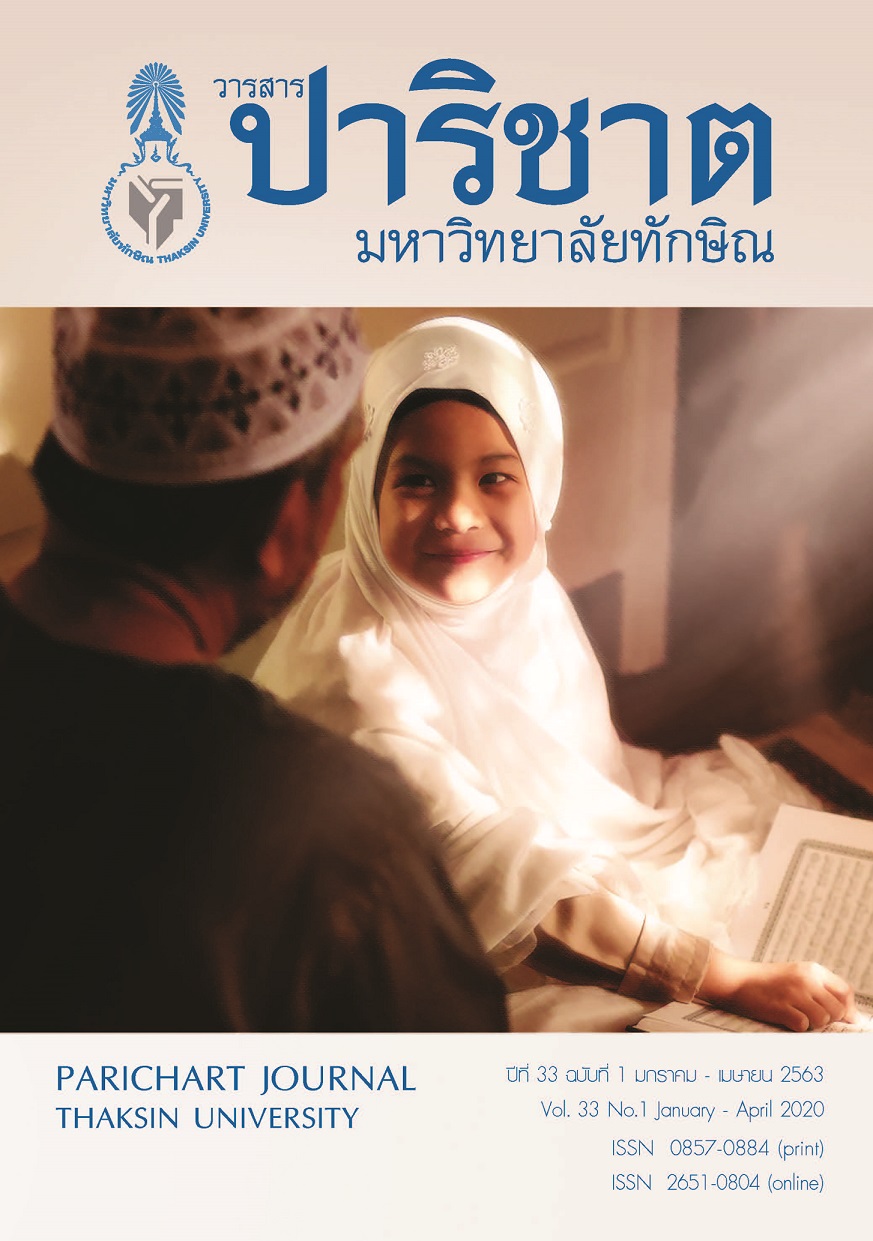The Capacity Development Model of Physically Disabled Workers in Bangkok that Meets Demands of the Workplace
Main Article Content
Abstract
The research aimed to build up a capacity development model for workers with
disability in Bangkok to accommodate demands of their establishment, check its appropriateness and study a current capacity level of the workers with disability and a capacity level required by their establishment. The mixed method process was used to collect and analyze both quantitative and qualitative data. The study found that 1) the capacity development model of the disabled workers consisted of three main parts: strategic management, inducing empowering others, leader, being a human resource development, work distribution, risk management,
teaching, having a vision, change administration, performance management, self-potential development, solution and decision, and self-control, key capacity including self-development, systematic thinking, communication, work achievement, conscious communication, conscious working, service mind, human relations and team work, adherence to ethical standards and moral principles, and capacity to perform tasks and duties including office positions that were categorized as administrative officers, operators and secretaries, production officers and technicians that were categorized as production staff and maintenance officers and 2) the current working capacity of the disabled workers was at medium level while the need of the working capacity of the disabled labourers was at high level.
Article Details
References
Policy Statement of the Council of Ministers Delivered by Prime Minister Prayut Chan-o-cha to the National Legislative Assembly. (2014). The Royal Gazette. 131(Special Part), 180 Ngor. 1-21 (In Thai)
National Legislative Assembly. (2014). Statement delivered by the government to the National Legislative Assembly (NLA) on Friday September12, 2014 on the administration of 11 policy affairs of the government. Retrieved on February 5, 2019, from: https://library2.parliament. go.th/giventake/nla2557. (In Thai)
Pholphrul, P. (2018). Labour in ASEAN community: Opportunity and challenge. Retrieved on July 21, 2018, from: https://www.piriyapholphirul.blogspot.com/2016/01/blog-post.html (In Thai)
National Office of Empowerment of Persons with Disabilities. (2018). Report on persons with disabilities situation in Thailand on October 31, 2018. Bangkok. (In Thai)
The Department of Public Welfare. (2016). Permanent Secretary of the Ministry of Social Development and Human Security presides over the 3rd session of the Working Group on the Asian and Pacific Decade of Persons with Disabilities. Retrieved on February 1, 2019, from: https://www.aseanthai.net/ewt_news.php?nid=5414&filename=index (In Thai)
The Ministry of Labour. (2018). The summary report on employment situation of people with disabilities in 2017 and the direction of strategic adaptation in 2018 February 1, 2018. Bangkok. (In Thai)
Thailand Innovative Administration Consultancy Institute (TIA). (2010). Personnel Resources Administration Development Process Project of Pollution Control Department. Nonthaburi. (In Thai)
Krejcie, R. V., & Morgan, D. W. (1970). “Determining sample size for research actives”. Educational and Psychological Measurement. 30, 607-610.
Department of City Planning, Bangkok Metropolitan Administration. (2018). Investment promotion in Bangkok. Retrieved August 26, 2018, from: https://cpd. bangkok.go.th (In Thai)
Wongwanich, S. (2005). Needs assessment research. Bangkok: Chulalongkorn University Printing House. (In Thai)
Department of Community Development. (2018). Focus group discussion. Retrieved on August 26, 2018, from: http//:cddweb.cdd.go.th (In Thai)
McClelland, D. (1970). “Test for competency”, American Psychologists. 17(7), 57-83.
Akkarabaworn, C. (2010). Teaching documents in strategic performance management system (Tor Mor 7023). Bangkok: Faculty of Human Resource Development of National Institute of Development Administration. (In Thai)
Sornvaree, C. (2007). People administration and organization. Bangkok: Thailand Productivity Institute. (In Thai)
Pensuk, C. (2006). Occupational competency rehabilitation for people with disabilities in the Northeast in Ubon Ratchathani Province. Master of Arts (Society for Development Department). Ubon Ratchathani: Ubon Ratchathani Rajabhat University.(In Thai)
Sophabutr, P. (2012). An approach to developing competencies of Associate Industrial Engineers for the Preparedness of ASEAN Economic Community. Master of Science. Bangkok: National Institute of Development Administration. (In Thai)
Yanyalaksana, S. (2007). Competency development to enhance organization effectiveness, teachers and educational personnel performance in basic educational institution. Doctor of Education in Educational Administration. Bangkok: Kasetsart University. (In Thai)
Sawangruj, N. (2011). Social organization in occupation competency rehabilitation for people with disabilities: Case study of Club of People with Disabilities in Phetchabun Province. Phetchabun: Office of Academic Resources and Information Technology, Phetchabun Rajabhat University. (In Thai)
Jiraprapasurawong, M. (2012). Efficiency of the Directors of the Tambon Health Promotion Hospitals in Pattani Province. Master of Arts (Social Development Administration). Bangkok: National Institute of Development Administration. (In Thai)


